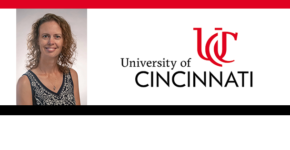 Truth and honesty in politics can seem fleeting or nonexistent.
Truth and honesty in politics can seem fleeting or nonexistent.
Sarah Stitzlein, professor of education and philosophy at the University of Cincinnati, gets us working to change this.
Sarah M. Stitzlein is Professor of Education and Philosophy at the University of Cincinnati. She is editor of the journal Democracy & Education, President of the Ohio Valley Philosophy of Education Society, and Past-President of the John Dewey Society. As a philosopher of education, she engages in normative political philosophy to identify problems in democracy and craft educational solutions. She was commissioned in 2020 by UNESCO to write about the future of civics education globally and in 2021 by the National Academy of Education to describe how to improve civic reasoning and dialogue in the United States. Her most recent book takes up matters of how to cultivate honesty in our political context, Teaching Honesty in a Populist Era: Emphasizing Truth in the Education of Citizens (Oxford University Press, 2024).
How Do We Encourage Honesty in our Political World Today
Honesty matters. Whenever Americans must figure out how to live together, we engage in civic reasoning. To reason together well, we must seek and tell the truth.
A traditional philosophical account of honesty focuses on honesty as the virtue of being truthful, forthright, and sincere in pursuing an accurate account of an objective reality. But this account of an honest person focuses just on the behavior of the individual, rather than on how that individual’s actions impact and are impacted by others. Rather than pointing fingers at liars as moral failures, we may have greater leverage to encourage honesty by highlighting what is at stake in our civic and political lives.
Rising populism has significantly impacted how and why people are dishonest. Populism taps into the emotional responses of the people, uniting them against the elite. For populists, truth-telling emphasizes the sincere way in which one expresses the common sense opinions and experiences of the people. It produces an affective response that makes things feel true.
To head off tendencies toward sharing false information to shore up political allegiances, we should emphasize more expansive communities and how knowledge building works in them to facilitate successful civic reasoning. Taking up an approach rooted in traditional American pragmatist philosophy, we follow suit with populists in emphasizing personal experience over an objective reality. We focus instead on truth as that which “works” for us. Those are beliefs that enable us to understand the world and act in ways that serve our needs and those of others. We don’t just stop at our personal desires in the moment, though; rather we look at their impact on others and in the long run. We determine “what works” through experimenting with our beliefs and testing them in light of our lived realities. Our ability to reason together well depends on cultivating the disposition to honestly determine and share the truth.

